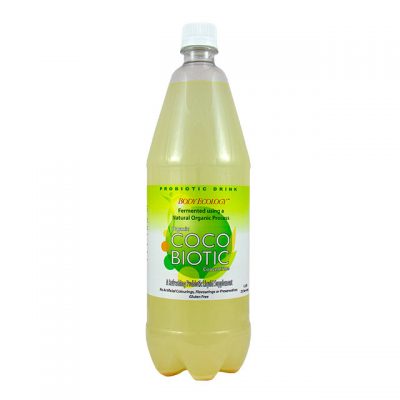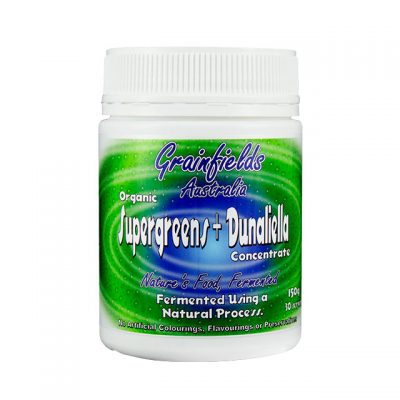LACTOBACILLUS RESEARCH UPDATE
Ongoing research continues to identify the ever-increasing roles that Lactobacillus and other lactic acid-producing bacteria play in balancing digestive functions. The implications of this balancing effect go far beyond our early interpretations of the possible benefits to our health.
Part One – Basic digestive Benefits
Over the past ten years we have all been made aware that Lactobacillus bacteria form a significant part of the natural intestinal flora. Large populations of this and other lactic acid-producing bacteria regulate the levels of friendly bacteria and reduce the levels of toxic pathogens which cause ill health. The following material summarises some of the functions of the group of bacteria of the intestine.
Potential benefits of Lactobacilli Bacteria to Health
1. pH Balance
By altering the pH of the large intestine to a slightly more acidic level, putrefactive bacteria (those potentially detrimental to good health and increasing foul wind production) tend to be inhibited or destroyed. The pH is altered by active Lactobacilli bacteria producing high levels of lactic acid. The presence of this and other acids inhibit the growth of undesirable bacteria, moulds, mould spores and yeast, particularly the Candida form.
2. Improve Digestion, Digestibility of Foods and Reduce Flatulence
Through the bacteria’s active enzymes, foods exposed to these bacteria are broken down and pre-digested. When consumed by humans, nutrients are more readily available for absorption and often improve the biological value of foods; yoghurt is a prime example. The presence of active bacteria in the gut of man can aid its own digestive process in breaking down foods. This is particularly important in the aged population where digestion tends to deteriorate in the later years. Because of enzyme activity, the bacteria Lactobacilli can be useful in reducing the wind associated with poor digestion. Foul-smelling wind is usually the result of the bad bacterial cultures using the cholesterol itself or by producing substances which alter the body’s metabolism of the cholesterol. Time will determine the validity of the anti-cholesterol properties.
LACTOBACILLUS – RESEARCH UPDATE
Much has been spoken about the role of Lactobacillus in the digestive tract. It has been well-established that balancing bacterial flora plays a key role in the digestive processes. However, little has been explained about the role Lactobacillus plays in the body’s defense system. Balancing intestinal flora appears to play an important role in stimulating immune functions.
Part Two – Lactobacillus and Immune Function
When we think about infection, most people have heard of the word antibiotic. However, futuristic research is showing that there are definite benefits with the use of Probiotic bacteria to prevent infection rather that antibiotic therapy to treat infection. Probiotic means Prolife and is usually defined as a mono or mixed culture of live micro-organisms which when applied to man, beneficially improves the host by improving the properties of the indigenous flora.
In man, probiotics are considered to play a role in:
- The formation of well-balanced indigenous microflora.
- Improving the colonisation of the intestinal, respiratory and urogenital tracts.
- Lowering serum cholesterol.
- Non-specific interactions with the immune system.
- Metabolising lactose.
- Improving the absorption of calcium-rich foods.
- Improving the synthesis of vitamins and the predigestion of proteins.
Immune System:
On-going research continues to find that these friendly bacteria appear to directly act with the immune system. Animal studies show that when the intestine is cleansed of all bacteria (good and bad) the defense of the total immune system is very low. Reduced levels of defense chemicals and special white blood cells occurred in these bacterial-free animals. Activation of the white blood cells was seen when indigenous bacteria were introduced.
Further research has shown that live indigenous bacteria or the chemicals they make can penetrate the intestinal wall and stimulate immune cells to form. The word ‘translocation’ was introduced to describe the passage of live bacteria from the intestine to the lymph nodes and to other organs such as the spleen and liver. It has been proposed that strains of Lactobacillus may be able to translocate and survive for many days in the spleen or other organs and stimulate immune function. Research from other sources has shown that some strains of live Lactobacillus can stimulate powerful defense cells like the natural killer cells and increase the anti-viral chemicals like interferon.
Potential benefits of Lactobacilli Bacteria to Health
1. Improve gut microflora / improved recovery after antibiotic treatment.
The Lactobacilli family all appear to produce natural agents, e.g. acidophillin and Bulgaricus produces bulgarican, which have the ability to reduce or destroy competing bacteria in foods and in the human gut. Regular consumption of live Lactobacilli bacteria improves the gut microflora and reduces the number of unwanted bacteria. Also, the use of certain antibiotics destroy good and bad bacterial flora in the human gut. Re-population with good bacteria helps to re-establish a healthy balance of bacteria.
2. Lactose Intolerance
Consumption of fermented foods containing lactose appears to improve the digestibility of these foods in those who have a milk or moderate problem with lactose digestion. It is also believed that the presence of live Lactobacilli bacteria in the gut also improves the digestion of lactose in those foods not previously fermented before consumption. This is due to the enzymes which are capable of breaking down the lactose from foods into more suitable form.
3. Ongoing Research and Bowel Health
It has been shown in a number of studies that consumption of some fermented dairy foods reduces the cholesterol-elevating effect of equivalent non-fermented foods. That is – yoghurt appears far less cholesterol-elevating than normal milk. Some studies believe these bacteria contain substances which may lower cholesterol. The effect may be due to the bacteria using the cholesterol itself or by producing substances which alter the body’s metabolism of the cholesterol. Time will determine the validity of the anti-cholesterol properties.




